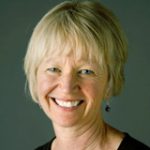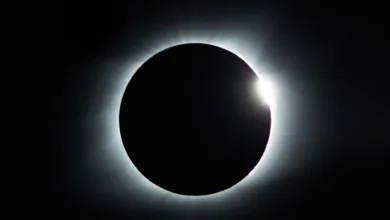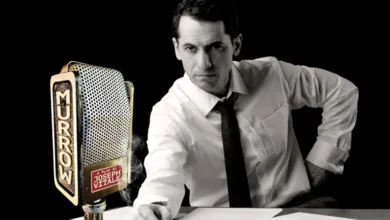Missy Burton: Finding Passion and Beauty in Art and Life
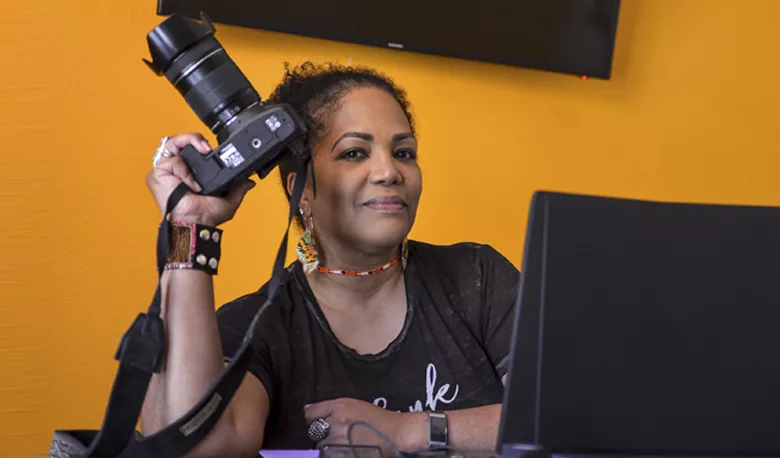
When Missy Burton was five years old, her grandfather gave her a Polaroid camera. He was a photographer, and she decided she wanted to become a photographer, too.
So that’s what she became.
Well, that… and a musician with five CDs under her belt, a mother, a wife, a certified butterfly gardener, a deep-thinker, and an observer of life. She finds spiritual connection in hands, in history, in dragonflies, in butterflies. She teaches children to find beauty in concrete or in crevices, in dried grass, in puddles.
Oh — she also holds a full-time job in internet technology.
So what was it she wanted to be, when she grew up? Whether you ask her today or were to have asked her a half-century ago, her answer would be as steadfast as it is unsurprising:
“I wanted to be me,” Burton said.
Burton grew up in an artistic family. Her dad’s a musician, her mother writes prose like poetry, her brother is a poet, and her uncle has a band.
“We were always encouraged to follow our passion,” Burton said.
Over and over again, she says, they were all asked this goosebump-inducing question: “What makes your heart jump?”
For her, it was art. And still is.
“I always feel it has to be a totally immersible process,” she said. “Either you connect with it or you don’t. I don’t need 8 billion people in the world to like my work.”
But if you have an open heart and open mind, and if you are willing to listen, she is more than happy to share her passion.
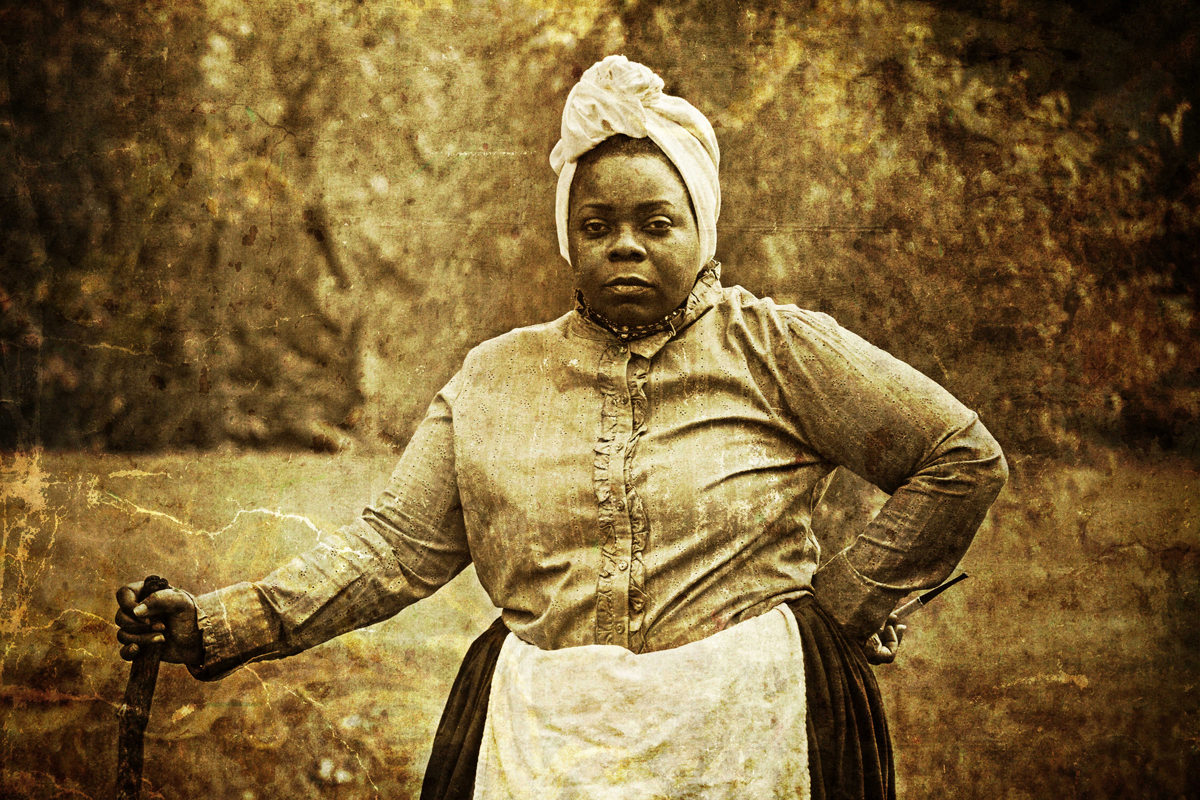
One embodiment of that passion is “I Am Woman,” a photography exhibit hanging on the walls of her just-opened gallery, Msanii HOUS Fine Art (“The Artist House”), in downtown Carrollton.
One photograph immediately draws you in — for its size, yes, but primarily for its subject: an African-American woman dressed in a long skirt and high-collared blouse with a kerchief on her head.
The woman is a model, and Burton shot the photograph at White Rock Lake. But you’d never know that just by looking. Standing solemn-faced in sepia tones and staring at the camera, she has the look of a “mammy,” a black nursemaid from the Old South. Burton named her Dada — “sister” in Swahili — and has made her all but real. Working with a historian, Burton has created a story about Dada that spans seven generations.
“I’m proud of the dialogue this has generated,” Burton said. “[Dada’s] reclaiming a positive image for African-American women.”
Burton has started work on a coffee table book, featuring Dada and the other “I Am Woman” photographs. They depict women from birth to old age. The child being born is her niece, Lexi; those beautifully lined hands belong to Burton’s grandmother-in-law.
“She was 85 when I took that photo, and she’s 91 now,” Burton said of her grandmother-in-law. “She was upset with me because she couldn’t believe I’d take pictures of her hands when she didn’t even have lotion on them.”
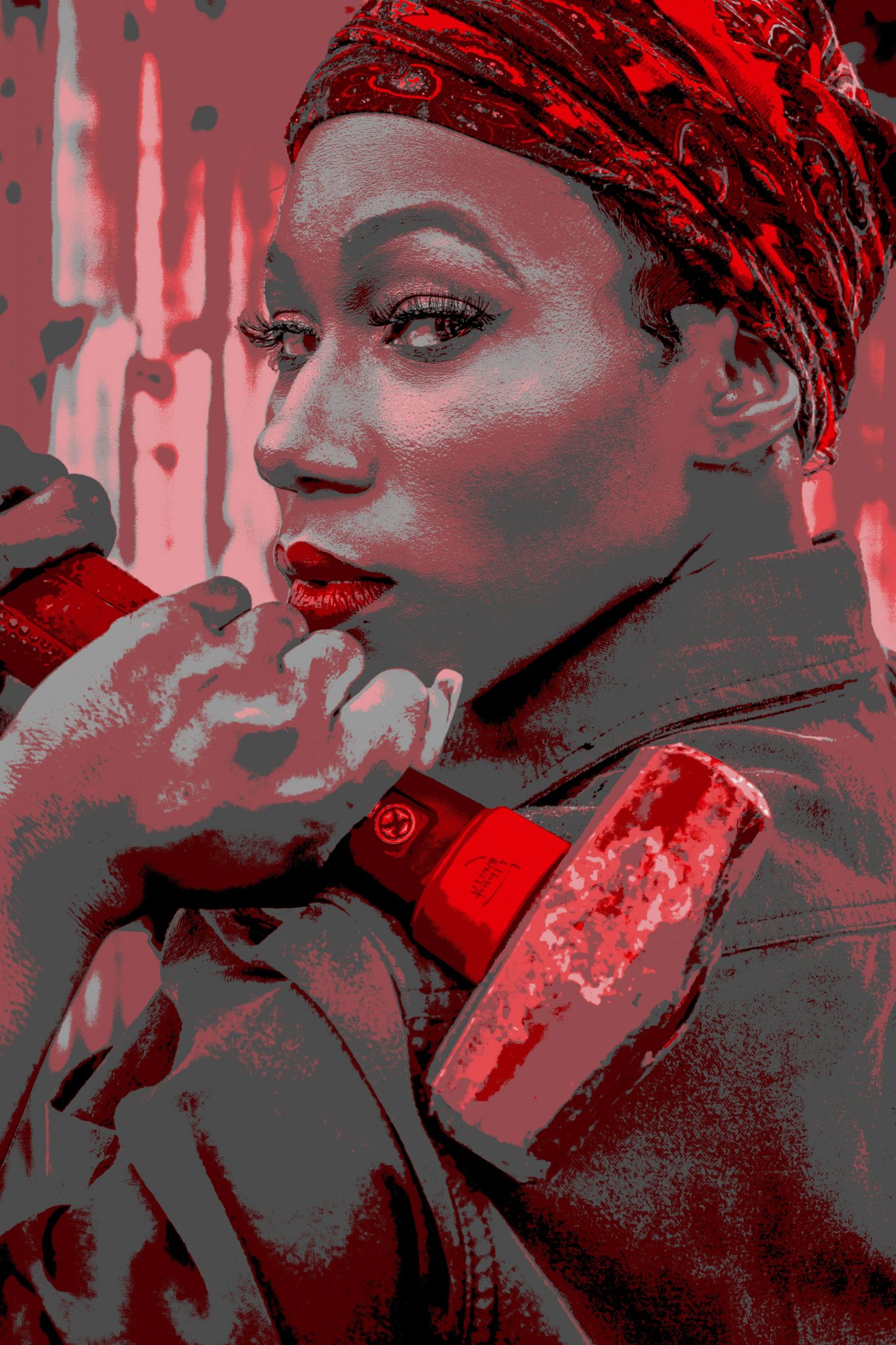 Burton continued: “Think of all the diapers these hands changed. All the pies these hands baked. All the cotton these hands pulled and bled over.”
Burton continued: “Think of all the diapers these hands changed. All the pies these hands baked. All the cotton these hands pulled and bled over.”
This is the way Burton thinks.
Behind what looks like one image are layers and layers of explanation and depth.
Her process, she says, is just as intense as the photos.
There is always more to be uncovered, to be told, to be interpreted, to provoke thought and discussion.
What, for instance, does the noose in one photo represent?
Why is the little girl in another covered with a net?
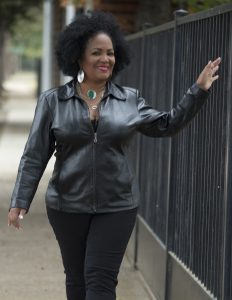 “I’m an African-American woman and a descendent of the Creek Nation,” she said. “With a dual history of Black and Native American, how can I not be passionate? I’ve always been dubbed the militant one. I was an annoying child who needed to know why. Why do people think the way they do?”
“I’m an African-American woman and a descendent of the Creek Nation,” she said. “With a dual history of Black and Native American, how can I not be passionate? I’ve always been dubbed the militant one. I was an annoying child who needed to know why. Why do people think the way they do?”
A lot of people, Burton said, would rather be quiet: to have a job, a home, a family, and be happy with those. She said she understood. Those are important parts of her life, too.
But, she said, “I was born with a passion to do more, and because of that, our Creator expects so much more. There’s a responsibility every single one of us has.”
Burton sees teaching as part of her own responsibility. She takes pride in mentoring aspiring artists and is an active mentor for Big Brothers Big Sisters of America.
“I’m extremely passionate about showing children how to see beauty wherever they are. I want them to see things differently. I want them not to be bored, to know there is more to life than this,” she said, holding up her cell phone.
She puts a camera in their hands and leads them out. They leave the city together, and when all the children think what they see in the country is just dried grass, she exhorts them to keep looking.
“What do you see that’s beautiful?” she will ask them. “Look deeper.”
Even in the city, when surrounded by concrete and buildings, Burton tells the children to look deeper: “Look at the crevices. That’s what art is. Look at the light and color and shadows.”
Burton said you can find beauty anywhere if you look at something long enough.
“I can watch just one flower for two hours,” she said.
But a few years ago, due to a freak medical occurrence, Burton went blind for six weeks. “I couldn’t read. I couldn’t watch television,” she says. “I could only hear. I’d listen to stories and visualize everything being said. I learned that everything you can touch, feel, and buy means nothing. Your eyes are everything. I want to see you. I want to see your eyes.”
The experience also taught her this: “Everything is inside. As an artist, I ended up chasing what’s in my mind.”
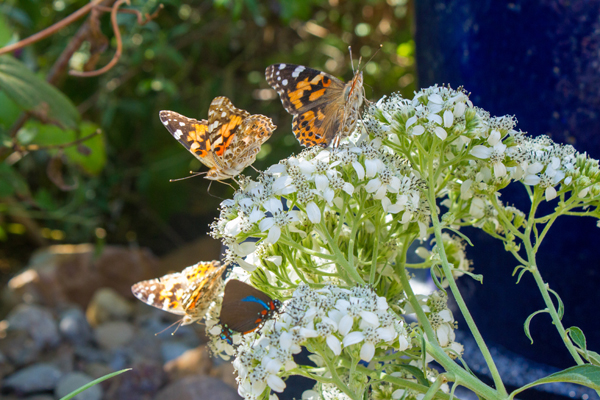 Which is ever-growing and ever-expanding. She soaks up knowledge and seeks ways to share it. She mimics the life cycle of butterflies — reminding her of her beloved grandmother, who loved them.
Which is ever-growing and ever-expanding. She soaks up knowledge and seeks ways to share it. She mimics the life cycle of butterflies — reminding her of her beloved grandmother, who loved them.
“The caterpillars come out alive and eat, or consume, all the knowledge,” Burton said. “They crawl away from the garden because they have learned everything they needed to know from there. They leave to begin their transformation into butterflies. In essence, they have to re-group.”
She continued, “We re-group. We find our way to go forward.”
Seeking and finding ways to make her heart — and those of everyone else around her — jump.


